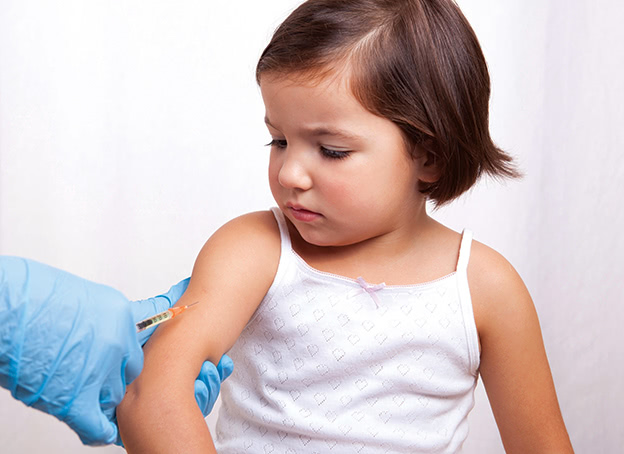
Section
About Vaccines
Vaccines prevent serious diseases such as measles, whooping cough, and polio. Vaccines teach the body to fight certain diseases. For example, the measles vaccine teaches your baby’s body to fight measles. It is important to give vaccines to babies and young children because their bodies aren’t ready to fight these diseases on their own.
Vaccines are very safe, and they save lives. One of the best ways to keep your baby healthy is to make sure he gets all his vaccines.
Where to Find Help
Background information on vaccines from the Centers for Disease Control.
Things You Can Do
Tips on Getting Vaccines
Make sure your whole family is up-to-date on vaccines. This keeps you, your family, and your community safe.
Keep track of your child’s vaccines. You need to show proof of all the needed vaccines when he starts child care, preschool, or school.
When your child gets his first vaccine, the doctor should give you an immunization record. It will probably be a yellow card. You can use it to keep track of all of his vaccines.
Sometimes vaccines can cause mild side effects, like a sore arm or a slight fever. Call the doctor if side effects from a vaccine don’t get better in a few days.
Vaccines Protect Your Family and Your Community
Vaccines prevent many diseases that spread easily from person to person. For example, if your child didn’t get the measles vaccine, he could easily catch measles from a schoolmate.
When more people get vaccines, a disease can’t spread so easily. For example, if your child doesn’t get the flu, he won’t give it to anyone else. This helps everyone in a community.
Don’t Be Afraid to Vaccinate
Some parents have questions and worries about vaccines. Some people worry that vaccines cause autism, a condition that can affect a child’s social skills, speech, or behavior. Studies have shown that there is not a link between vaccines and autism.
Parents may also worry because children get so many vaccines. Babies and toddlers get vaccines to guard against 14 different diseases. These are given when young children need protection the most. Vaccines given on schedule will not overwhelm your baby’s ability to fight infection.
Shots Before Starting School
Children must have certain vaccines before they can go to child care, preschool, or elementary school. Teachers and caregivers also must have certain vaccines. California laws require this. Vaccines help protect everyone from serious diseases.

The whole family should have vaccine shots.
When Does Your Child Get Vaccines?
Your child gets vaccines during well-child visits. He gets some vaccines more than once. Your child’s doctor will tell you when to get vaccines. If you have any concerns, discuss them with the doctor.
Where to Get Low-Cost Vaccines
Most health plans pay for vaccines. If your family’s income is low, your children may be able to get vaccines and other healthcare through Medi-Cal. Your local health department or community health center may also give vaccines at low cost or no cost.